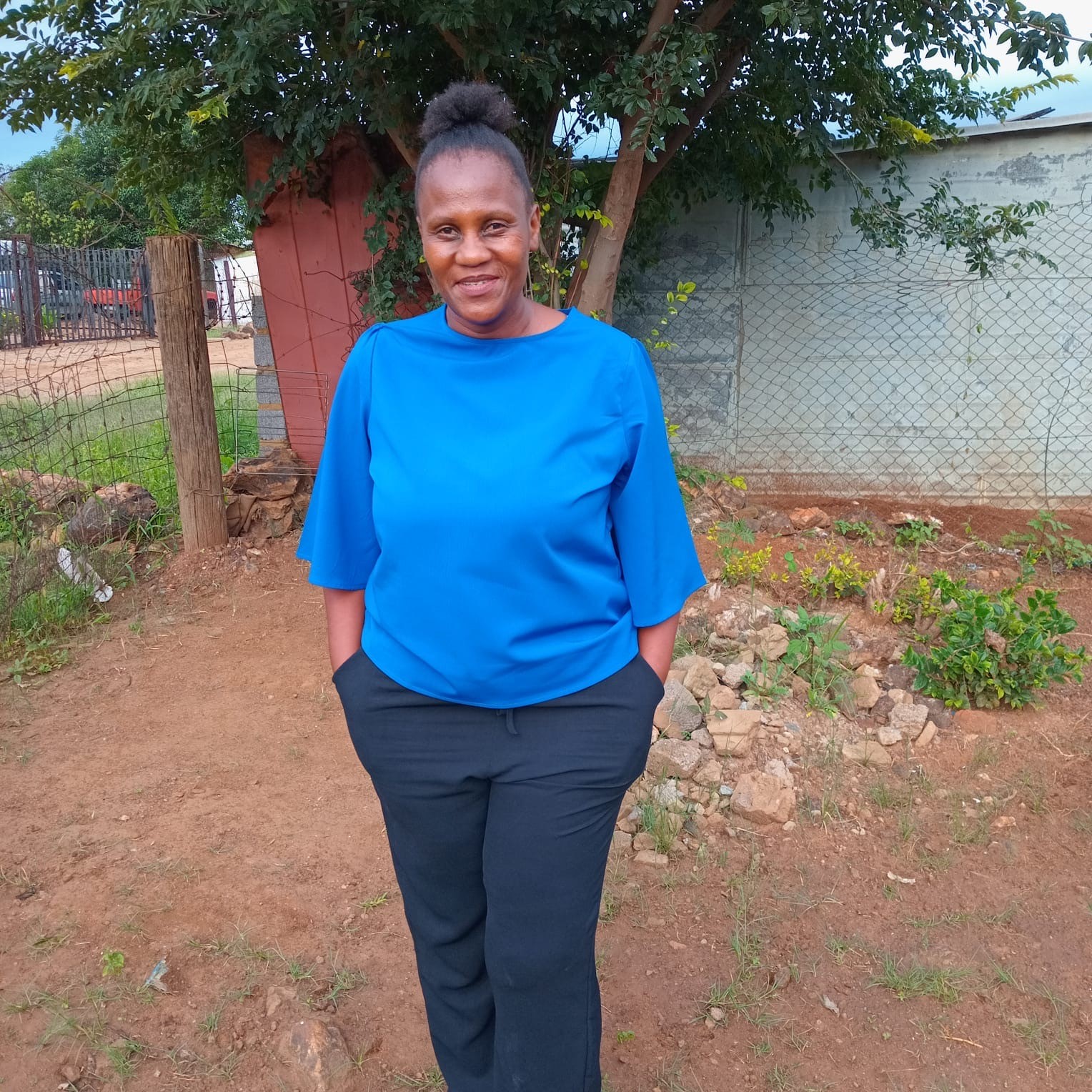Teaser Patricia Rabanye
Copyright© Patricia Rabanye
From Global Forum to Local Change: Patricia Rabanye Turns Civil Society Voices into Action for South-African Mining Communities
Under the motto “nothing about us without us” MACUA (Mining Affected Communities United in Action) and WAMUA (Women affected by Mining United in Actions) (External link) jointly advocate for the rights and interests of South African communities affected by mining. They are often left out in the decision-making whilst bearing negative social, economic and environmental impacts. Therefore MACUA/WAMUA promotes just, inclusive development and challenges the colonial legacies which continue to shape South Africa’s extractive sector, while emphasising and amplifying women's voices.
Photo of Patricia Rabanye
Patricia Rabanye, herself a resident of a mining-affected community in the Gauteng Province, has dedicated her life to her community’s quest for social justice and sustainable development. She represented MACUA/WAMUA at the OECD Forum in 2024 where she participated in the panels “Make Rightsholder’s Voices Heard: Enhancing effective Grievance Mechanisms in Mineral Supply Chains”, organised by GIZ, and “Safeguarding Women's Rights in Mineral Supply Chains: Insights from South Africa” organised by MACUA/WAMUA and Action Aid. In our interview, conducted in April 2025, she tells us about the ongoing issues, the impact of her participation at the OECD Forum, the work of MACUA/WAMUA and her hope for the future.
Her Mission: Tackling Injustices and Gender-Based Violence in the Extractives Sector
Patricia Rabanye tells us from the start that her work is rooted in the core principle that MACUA/WAMUA advocates for: “As an ordinary community member, I have a right to know what comes in and goes out in the mining industry in my area.” This awareness is crucial, as mining communities can face multiple layers of discrimination and exclusion.
Firstly, according to Patricia Rabanye, communities are structurally disadvantaged by industrial mining operations, receiving little benefit while bearing the social and environmental costs: “We've got all these big companies, but yet they don't see the importance of involving ordinary people in decision-making (…). They put profit before the people.” Secondly, communities struggle to access employment in the mining sector, and those who do often face harsh working conditions. For women, the burden is heavier with gender-based violence being widespread: “Sexual misconduct is one of those things that these women are facing daily. For them to even get a promotion, that's the only way you're going to go. It's not going to be because you are brilliant.” As a result, the women, Patricia Rabanye engages with in the mining sector, have welcomed her advocacy, as they hope for their experiences to be heard and acknowledged by decision makers.
The Role of Women in Civil Society Led Resistance
Nevertheless, Patricia Rabanye also pointed out that despite the challenges, women play an active role in advocating for justice and inclusion of mining-affected communities in resource governance. Her organisation empowers women by fostering participation and leadership through mining-related education and information sharing. These efforts enable women to understand the issues at hand and engage meaningfully in community initiatives, while also advocating for their representation within mining companies. However, she cautioned that such inclusion must go beyond mere symbolism: “You can't just sit in a meeting and say two or three words and then you say you're given a platform (…) what we need is action”, she stressed, adding that women must be “considered as institution makers”.
After her OECD Contribution: The Importance of CSO Inclusion
Before: Sinkhole in Patricia Rabanye's township in Khutsong
Ms. Rabanye’s participation in the OECD Forum highlighted the importance of female leadership and, more broadly, the inclusion of civil society organisations (CSOs). She told us that her participation yielded some unexpected positive reactions. During the panel discussions she spoke about three sinkholes in her community, which were caused by mining activities and posed danger to residents. The videos of her participation in the OECD Forum, which were shared on social media, also reached the local authorities. In the meantime, several sinkholes in the community have been rehabilitated. Patricia is certain that the high level of attention generated by her participation in the OECD Forum had an effect on the rapid rehabilitation process:
“As I speak to you, there are about three sinkholes that have been rehabilitated. The first one was that one that I spoke of and showed at the OECD. (..) I'm thankful for having that opportunity to come to Paris and share my story and my community’s story because if not, we would have been sitting with these sinkholes being opened and no action being taken. Whatever happened in Paris gave my community hope (...).”
Shaping the Future: Perspectives and Hope
After: Rehabilitated street in Khutsong
Looking to the future, Patricia Rabanye hopes that the government will take a more active role in monitoring mining activities and effectively hold companies accountable when they violate the rights of communities or individuals. She emphasises that not only the state, but also the communities themselves must be recognised as equal custodians of the country's natural resources.
“My wish and advice is for our government to recognise that they can't take decisions for communities without communities. Also, the same applies to the mining companies. You can't decide for us as communities what we need, when you don't live in this area and community. I'm hoping that moving forward, they will give us an opportunity on the platform, around the table (..).”
Her story and the information she shared regarding the issues in the extractives sector highlight the importance of including CSO perspectives in resource governance forums, discourses, and initiatives, as they raise awareness for the problems of local communities and may support local solutions. This is why the Sector Programme “Extractives and Development” supports the involvement of CSO members in relevant conferences.
Access the full interview here (External link).
For further information, please contact Linda Weber (External link).



